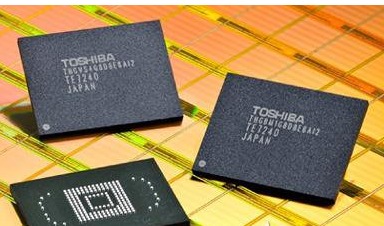Aluminum Laptop Cooling Stand,Aluminum Laptop Stand,Aluminum Laptop Stand 17 Inch,Aluminum Laptop Stand Adjustable,etc.
Shenzhen Chengrong Technology Co.ltd is a high-quality enterprise specializing in metal stamping and CNC production for 12 years. The company mainly aims at the R&D, production and sales of Notebook Laptop Stands and Mobile Phone Stands. From the mold design and processing to machining and product surface oxidation, spraying treatment etc ,integration can fully meet the various processing needs of customers. Have a complete and scientific quality management system, strength and product quality are recognized and trusted by the industry, to meet changing economic and social needs .
Aluminum Laptop Cooling Stand,Aluminum Laptop Stand,Aluminum Laptop Stand 17 Inch,Aluminum Laptop Stand Adjustable Shenzhen ChengRong Technology Co.,Ltd. , https://www.dglaptopstandsupplier.com With the increasing market demand for hybrid/electric vehicles, the wafer industry’s expectations for the power electronics market are also increasing; market research institute IHS points out that it comes from power supplies, solar photovoltaic (PV) and industrial Demand for motor drivers, etc., is expected to allow the emerging silicon carbide (SiC), gallium nitride (GaN) power semiconductor market to achieve a current double-digit growth rate of eighteen times over the next decade.
With the increasing market demand for hybrid/electric vehicles, the wafer industry’s expectations for the power electronics market are also increasing; market research institute IHS points out that it comes from power supplies, solar photovoltaic (PV) and industrial Demand for motor drivers, etc., is expected to allow the emerging silicon carbide (SiC), gallium nitride (GaN) power semiconductor market to achieve a current double-digit growth rate of eighteen times over the next decade.
Yoshiaki Yoshida, a member of Advantest's board of directors of the Japanese semiconductor automated test equipment supplier Advantest, said in an interview with the EETimes U.S. editor that many semiconductor companies: "We will all look forward to the future of power components," he said. Power chips in small consumer electronics devices such as mobile phones today are well-made and standardized, but power components in large-scale systems still face some problems.
Yoshida explained that the so-called large-scale systems refer to hybrid/electric vehicles, power grids, smart homes, smart cities, and the power systems of subways, etc., which require higher voltages and currents: "We currently have technical developments in such power components and The pace of standardization is lagging behind.†This is one of the motivations for the recent establishment of the Power Device Enabling Association (PDEA) in the semiconductor industry in Japan.
PDEA members established in April include Toyota Motor, Edwin Testing, Dai Nippon Printing, etc., aiming to promote the "standardization of power semiconductor technology." The establishment of the organization also means that Japan hopes to play a leading role in this untapped market for high-voltage, high-current power components. At present, the official website of PDEA is still only in Japanese, but Yoshida said that the organization does not exclude foreign members from joining.
The international standard for power components is governed by the SC 47E under the IEC (International Electrotechnical Commission); the mission of the organization is to define methods for designing, manufacturing, using, and reusing discrete semiconductor components that are environmentally friendly, including related terms and definitions. , symbols, basic ratings and characteristics, measurement methods and specifications. The PDEA does not intend to overlap with the work of the IEC.
However, Yoshida, director of PDEA, emphasized that "We believe that the IEC's standardization of power components - involving semiconductor manufacturers - will bring power components users (such as car manufacturers), material suppliers and test equipment manufacturers, etc. A great help.†He pointed out: “We intend to collect more relevant information from PDEA’s open forum and from more extensive (above wafer suppliers) industry members.â€
Yoshida said that in order to tie in with PDEA's emphasis on the establishment of a "power element user," the first chairman of the organization invited senior executives from Toyota Technical Development (TTDC) of Toyota Motor Corporation; TTDC was established in 2006 and is Toyota's The R&D think tank is responsible for vehicle design and development, including bodywork, chassis, engines, transmission systems, hybrid vehicles, fuel cells, electronic components, instrumentation systems, IT systems, communications systems, and IP design services.
At PDEA, Yoshida said: "We hope that leading power device users like TTDC can speak and share their wish lists, including materials, quality, supply chain requirements, etc." And he also pointed out that currently, for high voltage / Current requirements The developed power components and modules have not established test specifications; for example: "We want to implement test procedures and establish standards and specifications for evaluating power components so that users do not have to face the possibility of relying on test equipment. The same test results."
The component test procedures applied to consumer electronics devices have been well established, but the test procedures for high-voltage, high-current application power components applied by automobiles and other infrastructure have not yet reached the same level; Yoshida warns: “This may lead to The risks associated with personal safety.†The purpose of PDEA illustrates the ambitions of Japanese industries to allow power components produced in the country to lead the global market, and the organization will play the role of a third-party catalyst to fill gaps in the current power component industry ecosystem. 